CAAT Achievements
When Johns Hopkins established the Center, alternatives research was not considered legitimate science. No one would have predicted that safety evaluation could be done using non-animal methods.
Today, product safety in many industries—household goods, consumer products, pharmaceutical and food industries—incorporates a variety of in vitro methods. Can we take credit for all of this? No, but clearly Johns Hopkins led the way in greatly reducing animal use and in some cases, replacing animals entirely, providing legitimacy to the field and an acceptable scientific framework in which this could happen.
CAAT has made major contributions to the alternatives movement in the following ways:
- SCIENCE: We were responsible, at least in part, for the development of several in vitro methods currently in use. We were the first and remain a leading source of funding for alternatives research in the United States. From its inception, CAAT has been known for its dedication to high-quality science.
- COLLABORATION: CAAT is the first and, we believe, the only U.S. organization that regularly brings together academic and industrial scientists, animal welfare organizations and the government regulatory community for discussions of common ground. From the beginning, our workshops and symposia have been attended by diverse groups from around the world. Likewise, CAAT proposed and served as host for the first World Congress on Alternatives and Animal Use in the Life Sciences.
- A VOICE IN GOVERNMENT: The Center has been invited to participate in every U.S. government-related activity dealing with alternatives, including the FDA’s Sub-Committee on Toxicology, the Interagency Coordinating Committee for the Validation of Alternative Methods (ICCVAM), the National Academy of Science’s Institute on Animals, and the many government ad hoc meetings that have occurred over the years.
- HONORS: The Center’s work also has been recognized through a series of significant awards and honors presented to former director Alan M. Goldberg over the years. These include the Russell and Burch Award, presented by the Humane Society of the United States; an honorary doctorate; membership on European foundations dedicated to the issue of alternatives; and the Society of Toxicology’s Ambassador of Toxicology Award. Under current director Thomas Hartung, the center has continued to garner multiple honors and has expanded its scope.
